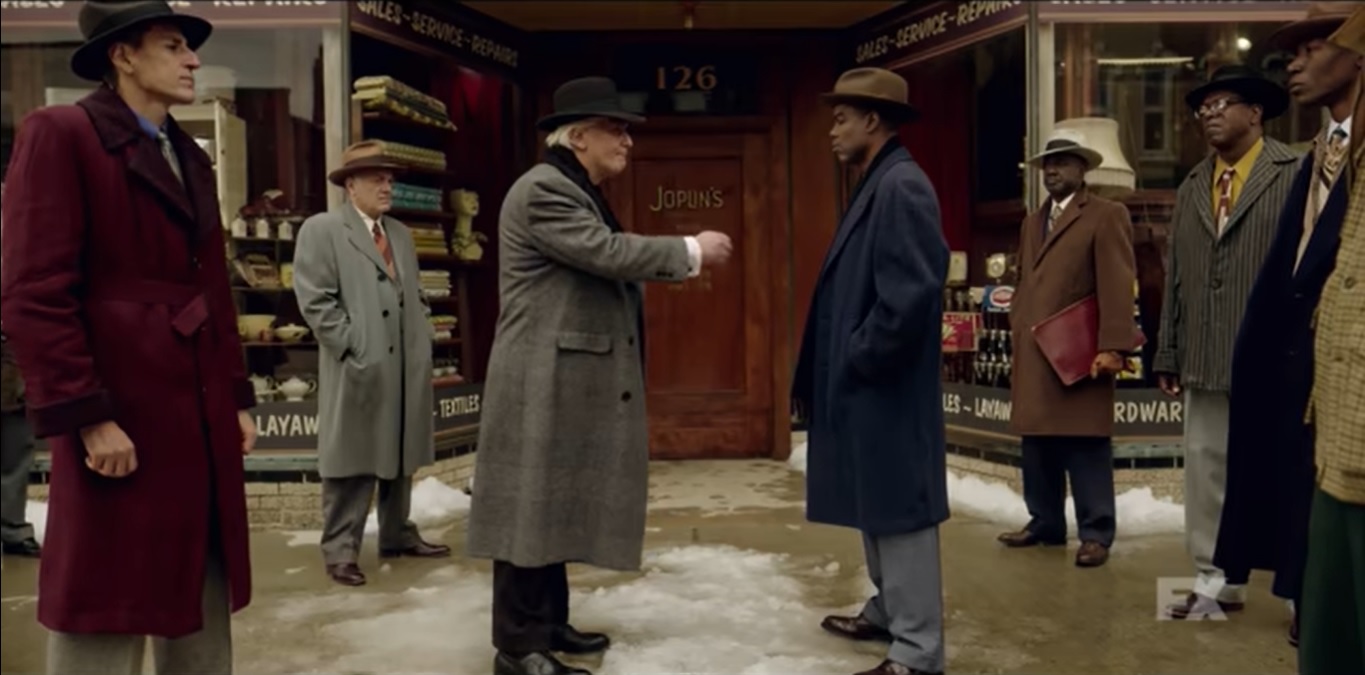
Two popular TV series will highlight Midwest mobsters this spring
Ozark and Fargo both focus on Kansas City organized crime in upcoming seasons

The Kansas City Mob is being featured in two popular crime series that will be kicking off new seasons this spring.
The Mob in this Missouri city on the Kansas border played a key role in the Netflix series Ozark and is expected to be a factor in season three beginning on the streaming service March 27. The series follows Chicago financial adviser Martin Byrd (played by Jason Bateman) and his family as they flee under threat of death to a lake resort town in the Missouri Ozarks, where he launders money for a Mexican drug cartel and ultimately wins approval for a riverboat casino. Among the colorful people the family encounters in Missouri is an aging former labor union negotiator and Vietnam War veteran from Detroit (played by Harris Yulin), who lives in the family’s home under an alias and even joked that he ended up in the remote Ozarks after killing Jimmy Hoffa. The Yulin character, a tenant known to the Byrd family as “Buddy,” uses his Mob connections in Kansas City to pave the way for the family’s casino.

The fourth season of the FX series Fargo, inspired by Joel and Ethan Coen’s 1996 film of the same name, begins April 19, pitting Italian and African-American syndicates against each other in Kansas City in 1950. Chris Rock plays Loy Cannon, head of the African-American crime family. “Italians, they’re the past,” Rock’s character says in one episode. “We’re the future. They just don’t know it yet.”
While the Kansas City references and events in these shows are largely fictional, they are indicative of the lasting impact organized crime had decades ago on the Midwest city, culminating in a 1970s Mafia war with street shootings and bombings and then in high-profile criminal convictions.
As these award-winning shows draw attention to Kansas City’s Mob history, other occurrences this year also could put the city’s key Mafia figures back in the limelight.
The 1995 Martin Scorsese movie Casino, starring Robert De Niro, Sharon Stone and Joe Pesci, celebrates its 25th anniversary in November, a milestone certain to inspire reminiscences during the year. The film is a fictionalized account of Las Vegas casino operative Frank “Lefty” Rosenthal’s troubled marriage with his wife, Geri, and her romantic involvement with the Pesci character, based on mobster Tony Spilotro, the Chicago Outfit’s overseer in Southern Nevada during the 1970s and ’80s. Spilotro and his brother, Michael, were beaten to death in the Chicago area in 1986 and buried in an Indiana cornfield.
Central to the movie’s plot is a skimming operation that illegally funnels untaxed gambling revenue from Las Vegas to mobsters in the Midwest. In real life, the skimming operation was exposed in June 1978, when members of Kansas City’s Civella crime family were recorded on a government wiretap in a local pizzeria, the now-demolished Villa Capri, discussing the skim. A little later, in November 1978, Carl Thomas, a Mob-connected casino executive once involved in the skim at the Tropicana and other Las Vegas properties, was recorded on surveillance audio in a residence near crime boss Nick Civella’s house in Kansas City, explaining to Civella and the syndicate’s upper echelon how the Las Vegas skim works in detail. Over time, Thomas and several Kansas City and Chicago Mafia leaders were convicted of skimming and sentenced to prison.

On another note, this year’s Super Bowl recalls a different scandal involving Nick Civella. The NFL championship game on February 2 in Miami pits the Kansas City Chiefs against the San Francisco 49ers.
Fifty years earlier, before the Chief’s last Super Bowl appearance, Civella was heard on a tapped telephone discussing bets placed with his organization on the January 1970 game in New Orleans between the Chiefs and Minnesota Vikings. Civella’s phone call to the Kansas City Mob’s social club, called The Trap, was enough for a federal grand jury to return an indictment charging him and others with violating interstate gambling laws, according to Mobsters in Our Midst, a 2011 book by William Ouseley, former supervisor of the Organized Crime Squad of the Kansas City FBI Field Division. Civella was convicted in the case years later.
According to the Kansas City Star, a key piece of evidence in Civella’s conviction was “the recording from the week of Super Bowl IV.”
The Chiefs beat the Vikings 23-7 behind quarterback Len Dawson, who had been questioned about illegally fixing games but was cleared of wrongdoing.
Civella died in March 1983, but, according to Gary Jenkins, a former Intelligence Unit detective with the Kansas City Police Department, a few older people who were aligned with the Civella syndicate are still around, as are younger organized crime figures active in bookmaking, Internet scams and even in robbing cocaine dealers.
Jenkins, a documentary filmmaker and podcaster who operates the Gangland Wire website, said in a recent Skype interview that the Kansas City Mob is “riding a crest in popular culture” these days with shows such as Ozark.
But Jenkins said these shows only get at some of the interesting material available in the city. “Kansas City is the source of a lot of great stories that are untapped,” he said.
Larry Henry is a veteran print and broadcast journalist. He served as press secretary for Nevada Governor Bob Miller, and was political editor at the Las Vegas Sun and managing editor at KFSM-TV, the CBS affiliate in Northwest Arkansas. Henry taught journalism at Haas Hall Academy in Bentonville, Arkansas, and now is the headmaster at the school’s campus in Rogers, Arkansas.
Feedback or questions? Email blog@themobmuseum.org





